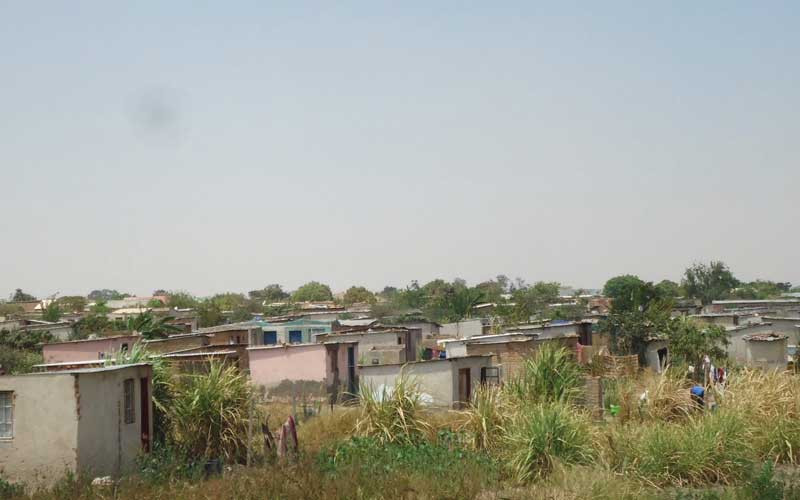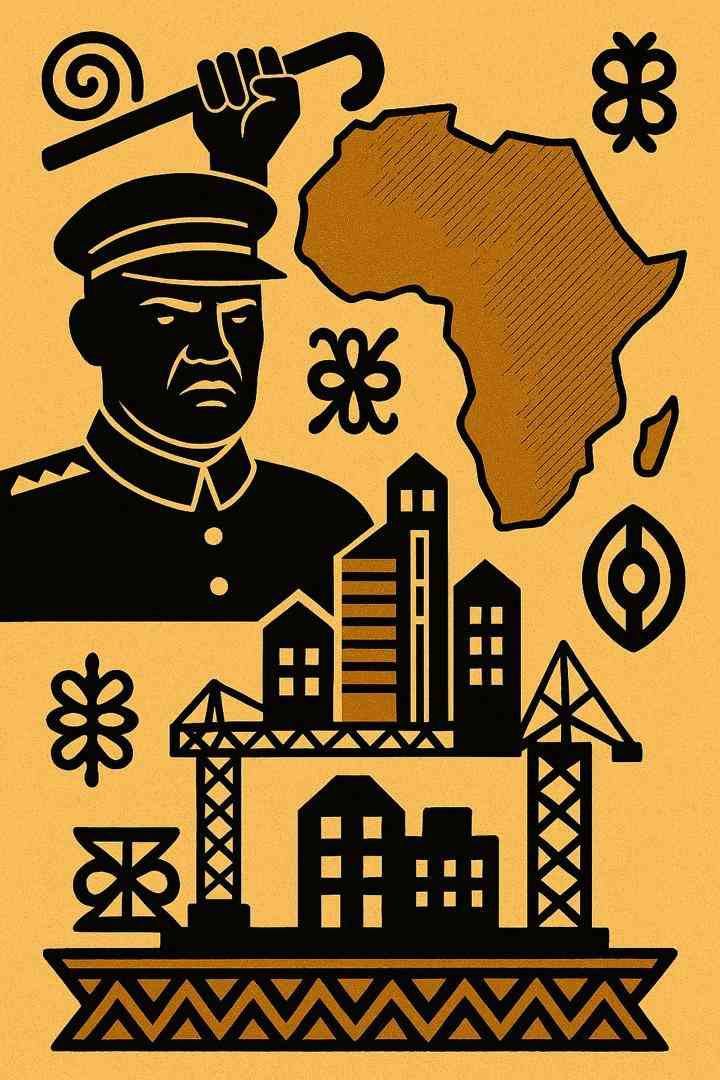
Land is, universally, an emotive issue; a prime source of conflict as expanding humanity competes for land from which to extract an economic and social livelihood.
As access to, or ownership of land differentiates the wealthy from the impoverished, itself the root of injustice and social, and political conflict, local government comes into play.
The general expectation is a local government system that promotes efficiency, equity and justice in the administration of land.
In 2023, employment and incomes are scarce, and therefore, treasured opportunities in Zimbabwe. A piece of land in Zimbabwe’s peri-urban and rural areas guarantees somewhere to construct a dwelling, space to cultivate and grow food in a field or garden, and quite eventually, somewhere to be buried when days on mother earth lapse.
Explaining why land issues easily feed the vocabulary of politicians, particularly during election time. When land ownership is formally endorsed through, for instance a title deed, the limits of social and economic livelihood expand outward as the deed can be ceded as security in accessing financial loans for investment in productive employment generating projects.
Just imagining how a whole nation can be transformed overnight! But is it going to be so easy?
The now famous remark by a Zimbabwean legislator, ‘We also died for this country!’ aptly captures the image of nation in distress; a nation whose laws and policies have been captured by partisan influences.
When in July 2022 Goromonzi Rural District Council descended on rural residents to ‘regularise’ illegal settlements, the expectation was that they were coming to establish alignment and consistency of human settlement systems within a given framework of legal, policy delivery, or technical values or principles, and guided by basic efficiency and equity imperatives.
- Cricket hero Raza draws inspiration from fighter-pilot background
- Trafigura seeks control of Zim metals over debts
- Cricket hero Raza draws inspiration from fighter-pilot background
- Caledonia profits up 16% after record production
Keep Reading
Colonial inequalities and injustices
In terms of the colonial Tribal Trust Lands Act (1932), tribal trust lands, administered by ‘African councils’, were in low rainfall, low agricultural potential natural regions III and IV.
Land inequalities and related injustices, the hallmark of the colonial political economy, became a key driver of wars of liberation across the African continent.
Zimbabwe’s first and second wars of liberation, which ended with Zimbabwe’s political independence on April 18 1980, paved the way for more secure and productive land relations in the country.
In 2013, Zimbabweans took another step beyond political independence, embracing constitutionalism as a vital cog in the march towards democracy, justice and peace.
Therefore, what does Zimbabwe’s Constitution say about land? But before we get to that question, let us focus on very recent experiences in Goromonzi.
Mbuya vaTadiwa reminisces
Eighty-year old Mbuya vaTadiwa is confused because when council officials arrived in July 2022, attempts were made unsuccessfully to bring them to clearly explain their ‘regularisation’ programme.
Rural residents are, quite typically, unfamiliar with, or illiterate about sophisticated issues of local governance, as they are immersed in day-to-day matters of human survival.
Evicted twice before, from Caledonia and then Hatcliffe as part of government’s Murambatsvina (literally, clean out the filth) programmes, Mbuya vaTadiwa is in a state of confusion.
She had heard about how villagers in Goromonzi lost farming land back then in 2010, when council appeared unannounced, pegged up local farming land and declared the land had all along been reserved for the local authority. (The concept of ‘reserves’ is basically drawn from colonial legislation).
In the ensuing gross drama and confusion, physical fights broke out between villagers and council officials.
When the young council officials arrived, in the company of armed police, Mbuya vaTadiwa noticed she was, quite ironically, wearing a wristband with the inscription: “Say No to Gender Based Violence”.
Mbuya vaTadiwa called her grandson Tatenda to join her in the meeting with the visitors. Unemployed since leaving Chinyika school three years ago, Tatenda, 19, had been looking for a job at the Prospect Lithium Mine in Goromonzi North ward 13.
But Tatenda’s friend said you only needed to raise US$300 to get a job.
For the moment the best Tatenda could do was brick-moulding. The visitor from council told Mbuya vaTadiwa she was an illegal settler, then produced a form on which she filled in family details.
Mbuya vaTadiwa was to pay US$1500 to Council in three months to regularize her stay. Tatenda quickly noticed the letter did not have a government reference code. And he also agonised over the US$1 500 issue since it appeared to contradict a well-publicised government position.
Local government after my heart
As cities and towns invariably grow outwards, appropriate laws and policies are needed as ensuing encroachments on communal lands entail often conflicts.
Zimbabwe’s supreme law, the National Constitution acknowledges that a home is be a formally registered and respected place of residence, allowing citizens, individually, or as families to erect structures and undertake activities that guarantee their sustenance, their safety, security, privacy and convenience. In the absence of strong, systematic, legal and policy measures, ad-hoc, knee-jerk policy reactions and interventions to complex urban challenges become the order of the day.
On the other hand, the deprived socio-economic status of vulnerable groups renders them vulnerable in conflicts with land-hungry local authorities, and land barons. In the end, homes, life investments, and livelihoods are lost as communities are ‘regularised,’ relocated or displaced.
It is among rights of residents to be educated about their policy environment, their extreme risks and vulnerabilities, and their rights and obligations particularly as they relate to local authorities.
As part of the state machinery, local government represents, protects, and advances the best in the local social, cultural and economic life of local residents, (being rate payers).
It does so for their maximum welfare, sense of security, belonging, pride and dignity, even as they live in their homes, as they access and consume electricity, water, sanitation, roads and transport, refuse removal, and also as they access healthcare, education and other local services.
An important civic responsibility for residents, which is that of electing leaders; councillors, who represent the best expectations for residents across the different wards in the districts.
Residents’ expectations as cities and towns expand outwards are laws and policies that:
Support educational and public awareness campaigns on constitutional rights and policy privileges, targeting in particular municipalities, councils, traditional leaders, and rural communities;
Promote participatory and inclusive local governance, gender equality, balanced territorial development, environmental sustainability, resilience to climate change;
Prioritise regularisation of existing rural land holdings for conversion into urban residential plots;
Link urban development with future needs, being solidly grounded in fundamental principles of equity, justice and human rights;
Develop properly planned peri-urban regions that lay the basis for well serviced urban, industrial, agricultural, commercial and housing infrastructure in the future;
Deepen mutual trust between councils, communities and residents;
Facilitate integration of rural residents into local authority programs with their minimum social disruption, with land being preserved for those with traditional entitlements, and existing settlers or homeowners being allowed to own their own plots of land;
Provide housing and prevents slums;
Secure urban population access to basic local, in addition to security of land tenure;
Minimise land losses, relocations/displacements of rural communities and disruptions of livelihoods in these areas. By prioritising traditional land rights to existing settlers, local communities are empowered to invest in the development of their homes and in the land;
Facilitate compensation to be granted where land had been taken away by councils; and
Provide adequate legislative, institutional and policy mechanisms to protect the poor and vulnerable communities. Appropriate regulatory institutional and policy frameworks are a cog in the wheels of democratic local governance, and the rule of law.
- Manyanya is a policy analyst. These weekly New Perspectives articles, published in the Zimbabwe Independent, are coordinated by Lovemore Kadenge, an independent consultant, managing consultant of Zawale Consultants (Pvt) Ltd, past president of the Zimbabwe Economics Society and past president of the Chartered Governance & Accountancy Institute in Zimbabwe (CGI Zimbabwe). — [email protected] or mobile: +263 772 382 852.










